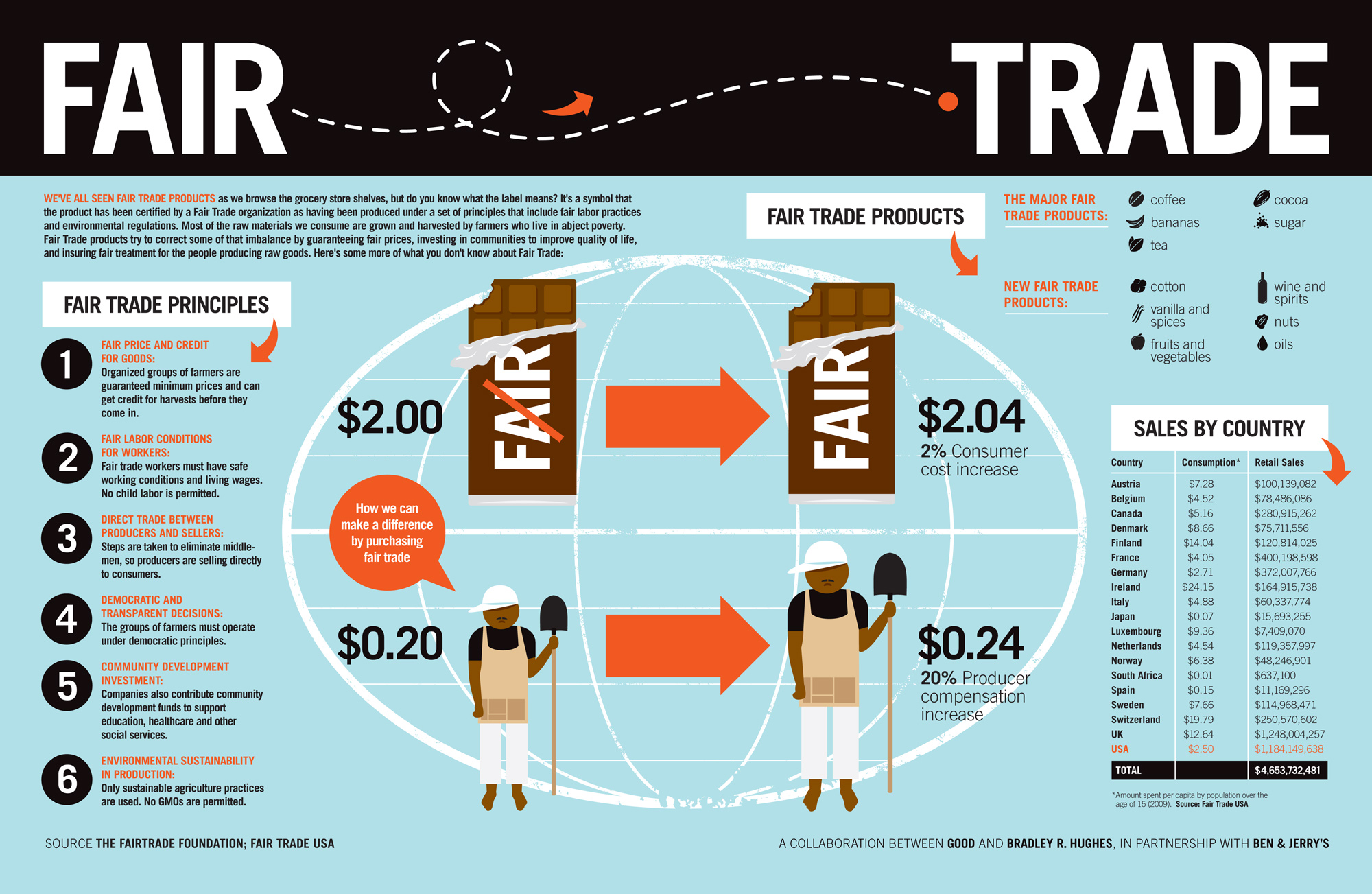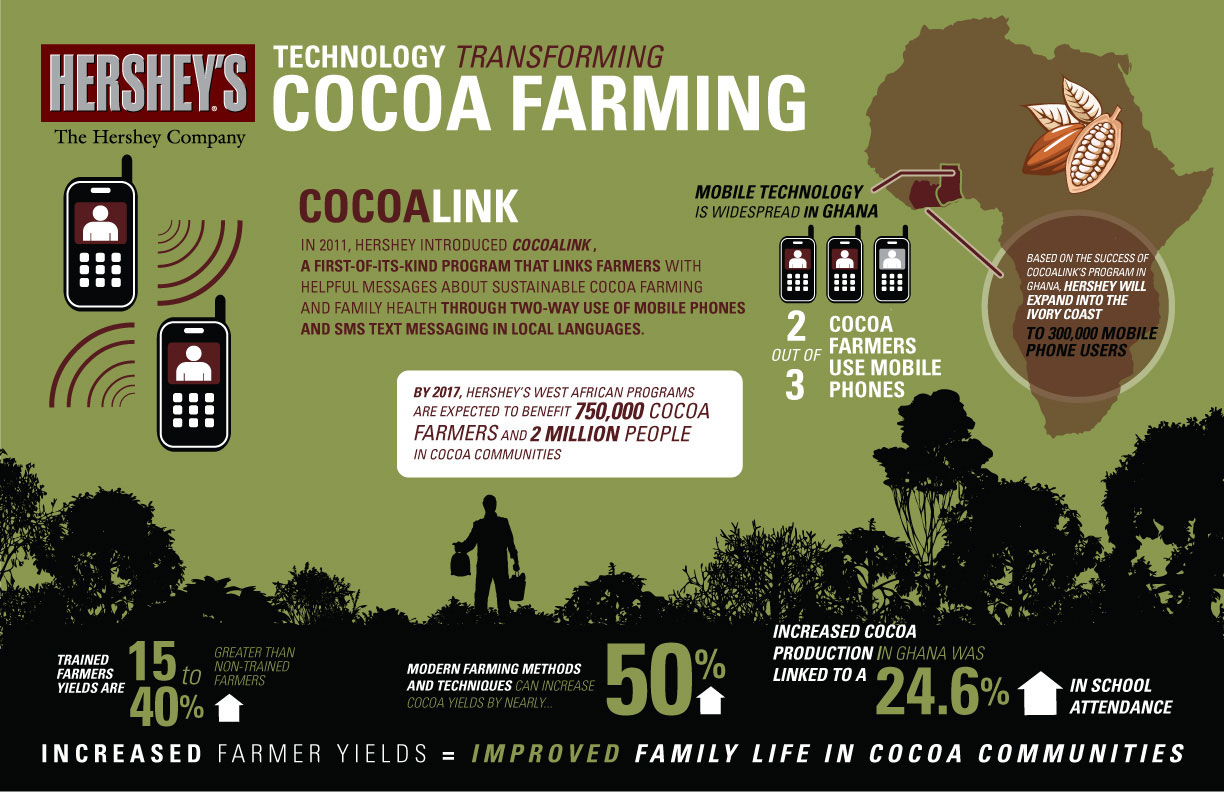West Africa produces approximately two-thirds of the world's cocoa beans. Nearly 45% of that cocoa bean production is sourced from the Ivory Coast where child labor is a major issue. The World Cocoa Foundation (WCF) reports that somewhere around 50 million individuals depend on cocoa production and the cocoa industry as the source of their livelihood. Nestle, along with several other chocolate companies, formed the WCF in 2000, largely to address issues that affect cocoa farmers and stabilize cocoa production. Among the stated objectives of the foundation are increased cocoa farmers' income, the establishment of environmental programs and encouraging the use of sustainable farming techniques. Issues addressed by this organization include low productivity, marketing challenges, pests and disease. environmental concerns and access to education
Other organizations have formed to regulate the chocolate and cocoa industries. In West Africa, especially the Ivory Coast, children are kidnapped and exploited for labor on cocoa plantations. Companies that purchase cocoa from farms that participate in these human rights abuses are contributing to this epidemic. Hershey's is a main contributor to this problem. The organization Food Empowerment Project researched and producted a list of companies that make vegan products containing chocolate to find out if they source their chocolate from areas where slavery can still be found. Companies such as Nestle, Mars, and others are culpable, but are not listed as they do not make vegan products.
The Fair Trade movement was establihed to assist in situations like this where people are being exploited.

Coincidentally, Hershey's has an incentive to use only ethically sourced cocoa by the year 2020
